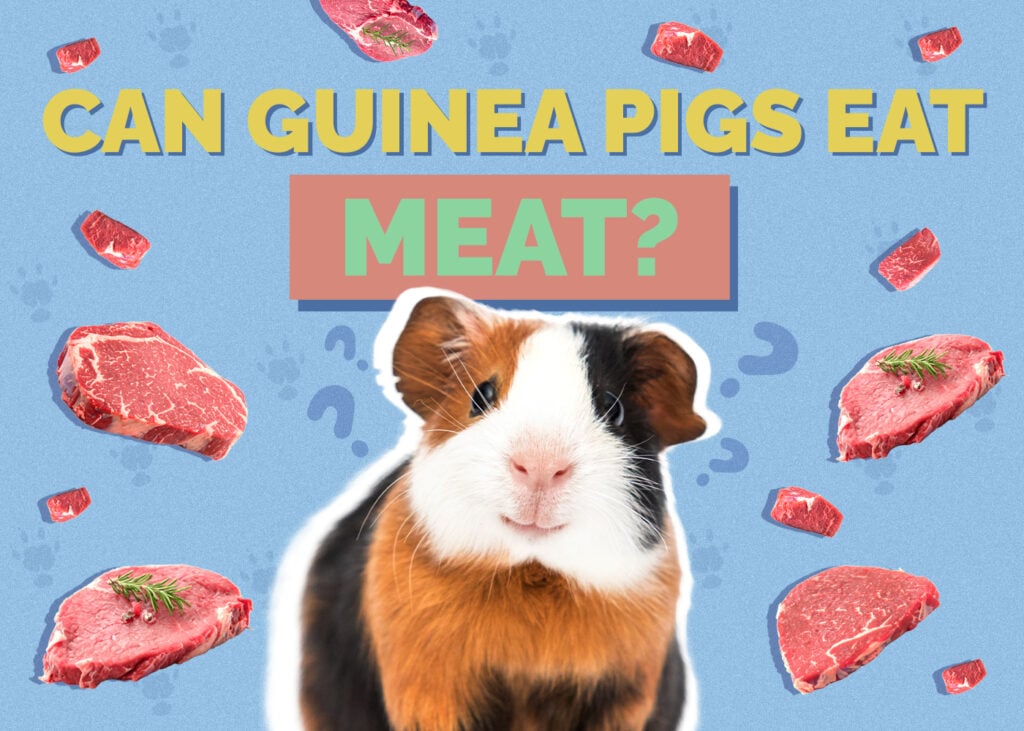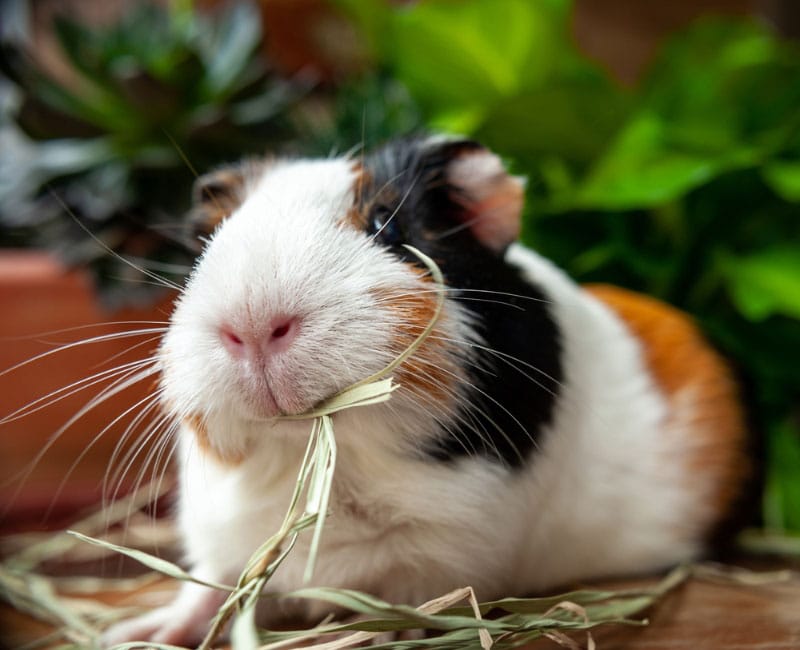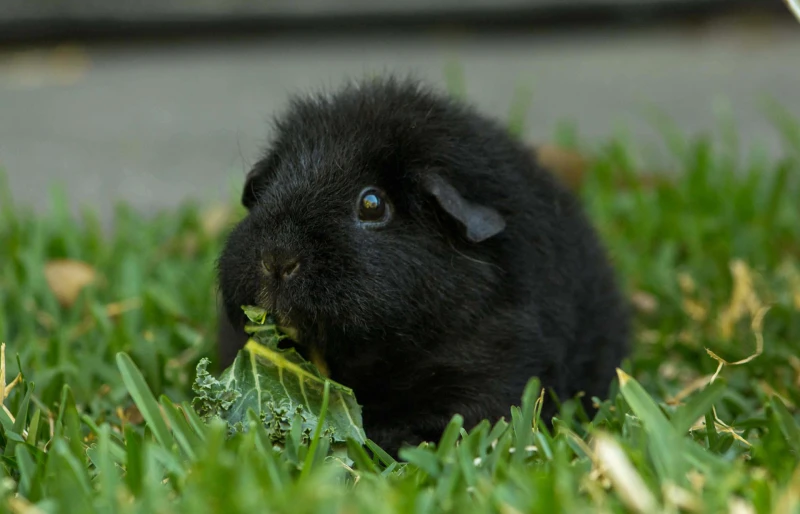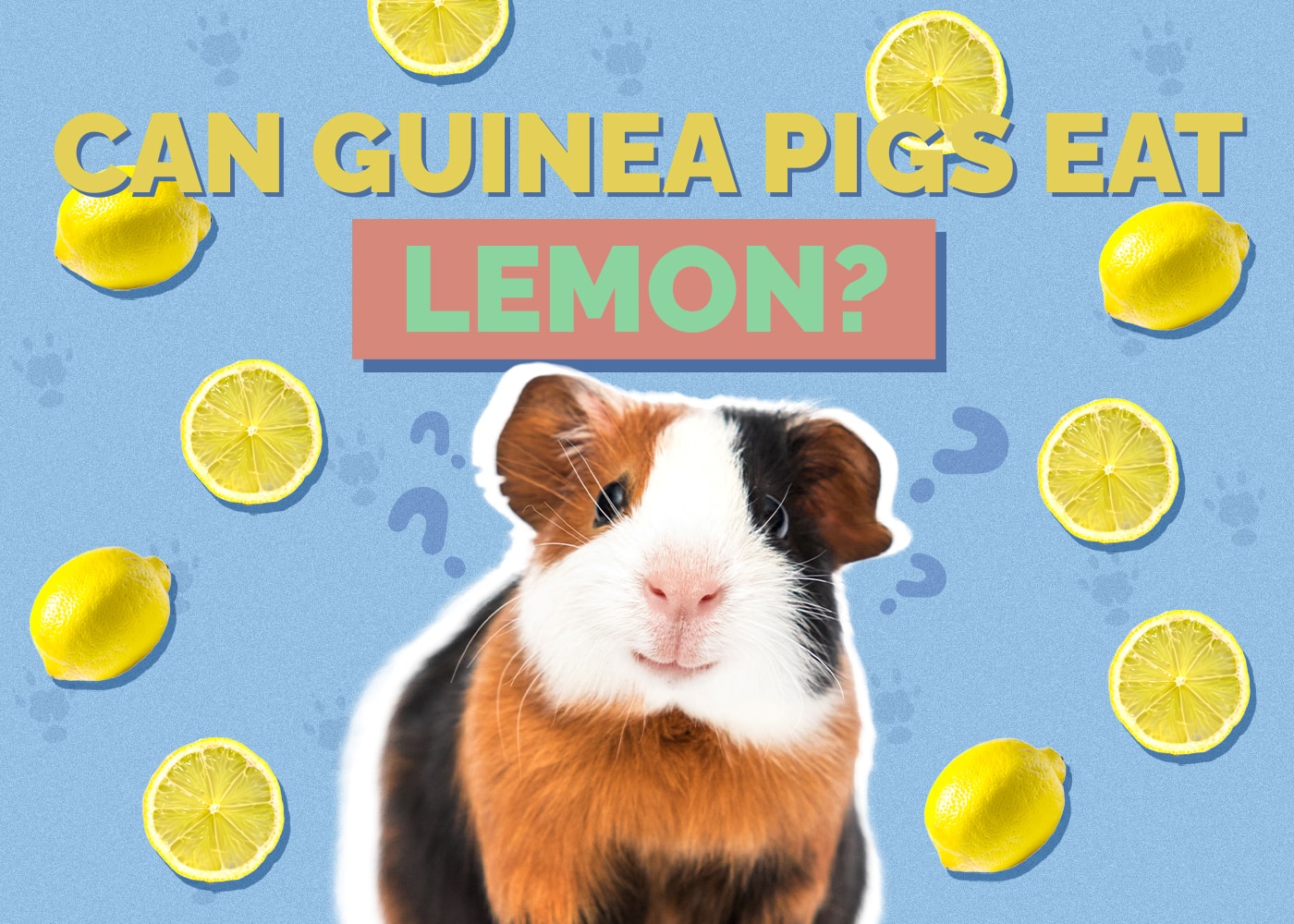Can Guinea Pigs Eat Meat? Vet-Approved Nutrition Facts & FAQ
Updated on


Guinea Pigs are one of the easiest small exotic pets to take care of, which makes them a great choice for beginners. However, they still need the right diet to stay healthy, and that means you need to know which foods a Guinea Pig can and cannot eat. For example, Guinea Pigs should never eat meat.
In this article, you’ll learn why Guinea Pigs shouldn’t eat meat, and other foods to avoid. We’ll also cover the basics of what they should eat, including supplements and how much to feed.
Why Guinea Pigs Can’t Eat Meat
Guinea pigs can’t eat meat simply because they are herbivores. Herbivores are adapted to chew, digest, and absorb nutrition from plant sources. While it’s not unheard of for wild herbivores to occasionally eat things like insects or other invertebrates, there’s no reason for a pet Guinea Pig to do so.
If a Guinea Pig eats meat, it could cause stomach issues because their digestive tract is not designed for digesting animal protein. Long-term, eating meat could lead to nutrition deficiencies because the Guinea Pig can’t properly absorb the nutrients from this food.
What Should You Feed Your Guinea Pig?
Meat is off the table, so what should your Guinea Pig eat? Here are the basic staples of a healthy Guinea Pig diet.
1. Hay
Quality grass hay should comprise most of your Guinea Pig’s daily diet, and Guinea pigs should have constant access to hay. Chewing the hay helps keep their teeth worn down, and the fiber keeps their digestion running smoothly.
The following types of hay are suitable for Guinea Pigs:
- Timothy
- Orchard
- Meadow
- Oat
- Brome

2. Vegetables
It’s best to feed your Guinea Pig about ½–1 cup of chopped vegetables daily. Mix two or three types of vegetables each day and rotate the selections to provide as many nutrients as possible. Here are some vegetables your Guinea Pig may enjoy:
- Romaine lettuce
- Red or green leaf lettuce
- Dandelion greens
- Carrots
- Bell peppers (capsicum, technically a fruit)
Introduce new vegetables one at a time to ensure they don’t upset your Guinea Pig’s stomach. Avoid iceberg lettuce; although they’ll enjoy it, it’s mostly water and provides little in the way of nutritional value.
3. Pellets
Feed your Guinea Pig 1–2 tablespoons of a commercial pellet diet daily. Look for a Guinea Pig-specific diet enriched with Vitamin C.
4. Fruit
Fruit is high in sugar and should only be offered once or twice a week as a treat. Choose fruits that are high in Vitamin C to maximize their nutritional value. Potential options include:
- Berries
- Cantaloupe
- Kiwi
- Pineapple

5. Vitamin C Supplements
Like humans, Guinea Pigs can’t make Vitamin C. They rely on eating Vitamin C-rich foods and taking supplements for the essential nutrient. Ask your veterinarian whether your Guinea Pig needs supplements and how often you should give them, however, a diet consisting of the right balance of foods should meet their requirements.
Other Foods Guinea Pigs Shouldn’t Eat
Besides meat, there are some other foods you should avoid feeding your Guinea Pig. These items include:
- Spoiled food
- Bread, pasta, cereal, potato, and other starchy foods
- Pellets made for other animals
- Commercial treats, which are often high in sugar
Some vegetables, such as broccoli, cabbage, and collards, although a good source of calcium and Vitamin C, may give your Guinea Pig gas and should be fed only rarely. Other vegetables, including spinach, kale, and chard, may contribute to developing kidney and bladder stones. These should also be provided infrequently or avoided entirely.

Conclusion
As natural plant eaters, Guinea Pigs should not eat meat or foods containing animal protein. Instead, they require a diet rich in hay and vegetables with the occasional fruit treat. You need to provide fresh water daily and keep an eye on your Guinea Pig for any signs of Vitamin C deficiency, such as an unhealthy coat, weight loss, and pain. You can also consult your exotic animal veterinarian for help formulating a healthy diet for your Guinea Pig.
See Also:
- Can Guinea Pigs Eat Chicken? Vet-Reviewed Nutrition Facts
- Can Guinea Pigs Eat French Fries? Vet-Approved Facts & Safety Guide
Featured Image Credit: APICE CREATIVE, Shutterstock











